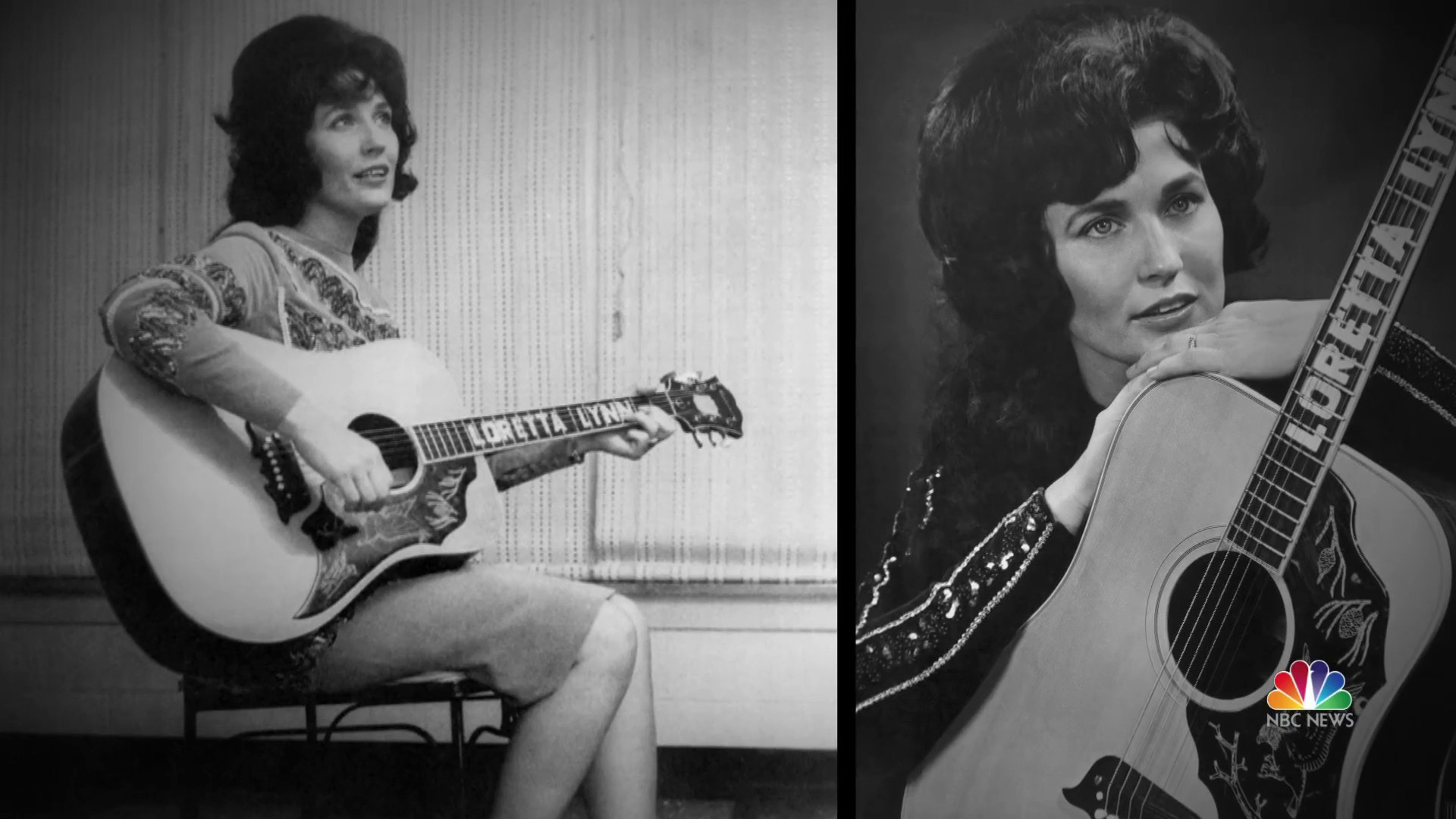
A daughter’s clear-eyed blessing on the life that raised her — “Coal Miner’s Daughter” turns one family’s hardscrabble truth into a song that feels like home lighting up from the inside.
Put the anchors up front. Written and sung by Loretta Lynn, “Coal Miner’s Daughter” was issued as a single in October 1970 on Decca, produced by Owen Bradley and cut at his famed Bradley’s Barn outside Nashville. The record did exactly what honest stories often do: it traveled. The single reached No. 1 on Billboard’s Hot Country Singles (week of December 19, 1970), crossed to the Hot 100 at No. 83, and topped Canada’s RPM Country chart; the song would also title the 1970 album that carried it. Those are modest numbers by pop standards and perfect ones for a country testimony—big enough to reach the nation, close enough to feel like it’s still speaking just to you.
The backstory is as plain and dear as the melody. Lynn wrote the lyric as an autobiographical portrait of childhood in Butcher Hollow (pronounced “Butcher Holler”), a coal camp near Van Lear, Kentucky—a place where money was scarce, faith was sturdy, and a hard-working father kept the family afloat through the Depression’s thin years. When the song ran long, Bradley fretted; Lynn famously trimmed three verses herself, then led the players in the studio, telling the steel and fiddle exactly where to step in. The result feels guided by her hand at every turn: a singer claiming her pages, her people, and her place.
Listen to how the story moves: not in grand metaphors, but in domestic particulars—the pantry and the patchwork, the Saturday chores and a mother’s stubborn thrift, the dignity in a father’s double shift. Lynn’s genius is scale. She keeps the camera close—no scenery, just rooms—and lets ordinary nouns do the lifting until a single line seems to carry a whole county’s weather. For older ears, that’s why the thing never ages: it doesn’t sell heroics; it remembers. It remembers the way pride can be quiet as supper, how love is often counted in what gets done rather than what gets said.
Musically, Owen Bradley sets a frame that’s clean and merciful—fiddle and steel weaving in like neighbors who know when to talk and when to let the room breathe. The tempo walks instead of struts, so Lynn can phrase like a storyteller rather than a soloist; when the chorus comes, it doesn’t explode, it opens. You can almost feel the boards underfoot and the screen door shift when the wind changes—details the production refuses to varnish away. That restraint is what gives her lyric its reach: the song sounds built to last because it was recorded as if the truth itself were the hook.
The cultural ripple is its own chapter. “Coal Miner’s Daughter” quickly became Lynn’s signature, and with good reason: the song named her, then lent its title to the 1970 album, the 1976 autobiography, and the 1980 film that carried her story far beyond country radio. Sissy Spacek sang the songs herself on screen and won the Academy Award for Best Actress, sealing the tale in American memory for a new generation. Decades later, the Library of Congress inducted Lynn’s 1970 recording into the National Recording Registry (2009) for its enduring historical and cultural value.
Accuracy of place matters here, because place is the song’s soul. On the map it’s Butcher Hollow; on the tongue it’s Butcher Holler—the local dialect that gives the title line its shape and sets the melody’s grain. That double naming—formal on paper, familiar in the mouth—is exactly what Lynn is doing across three and a half minutes: translating a community into a voice without sanding off what makes it itself.
If you grew up anywhere near rooms like the ones she sings, the lyric can feel like someone unlocking your own cupboard of faces—a father who smelled of dust and soap, a mother who stretched a dollar till it sang, siblings who learned early that happiness was something you made. For listeners who came to the song later, the power is just as sure: it is an invitation to respect the ordinary, to admit that love built of chores and promise-keeping is often the strongest kind.
And all of that lives inside the modest ledger we began with: single (Oct. 1970), Decca; produced by Owen Bradley at Bradley’s Barn; Billboard Country No. 1 (Dec. 19, 1970), Hot 100 No. 83; Canada Country No. 1; title track to the 1970 album; later the title of a best-selling book and Oscar-winning film; National Recording Registry, 2009. Facts, yes—but what you remember is the temperature. “Coal Miner’s Daughter” stands like a porch light in early evening: steady, ordinary, and a little miraculous for how far its glow carries.